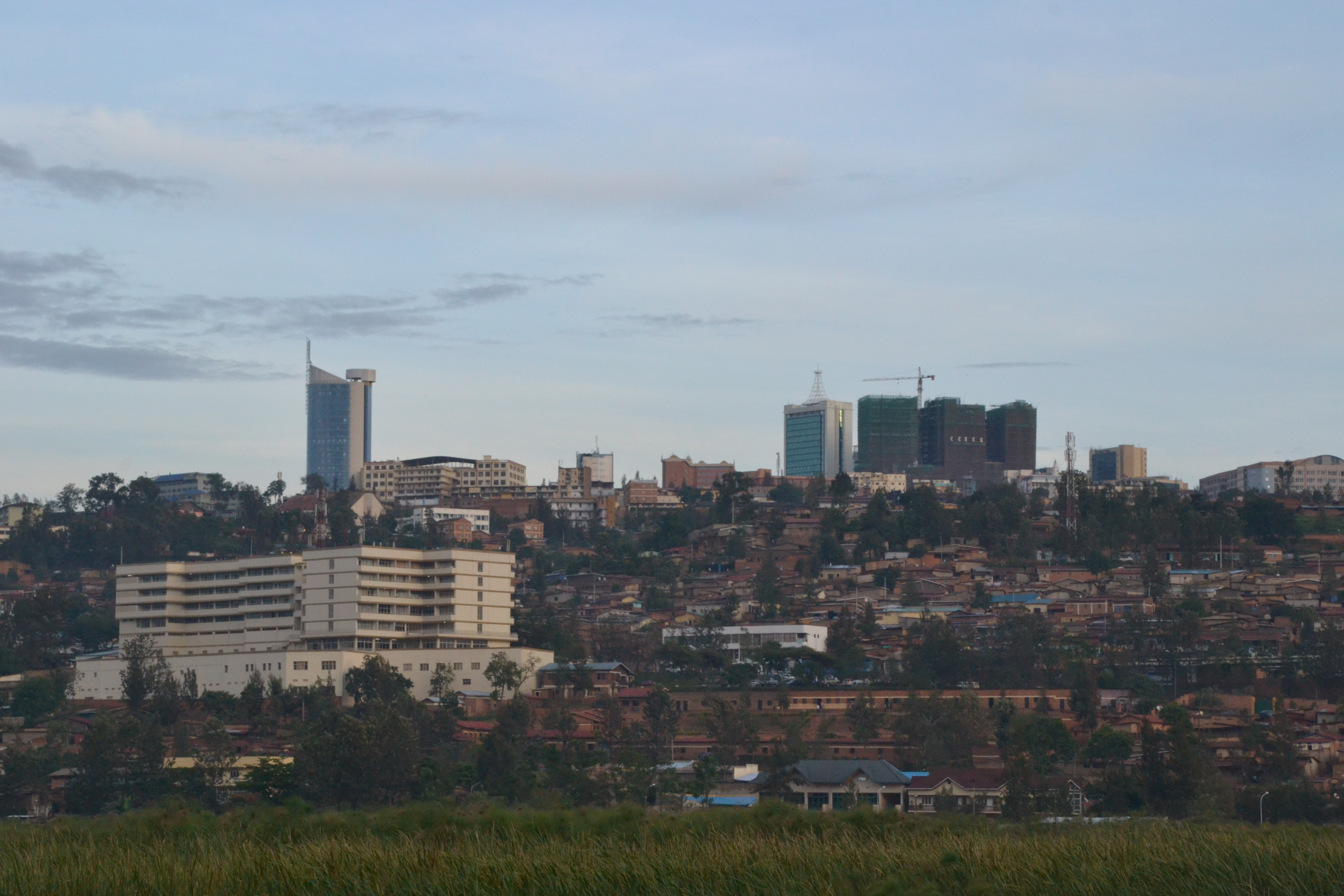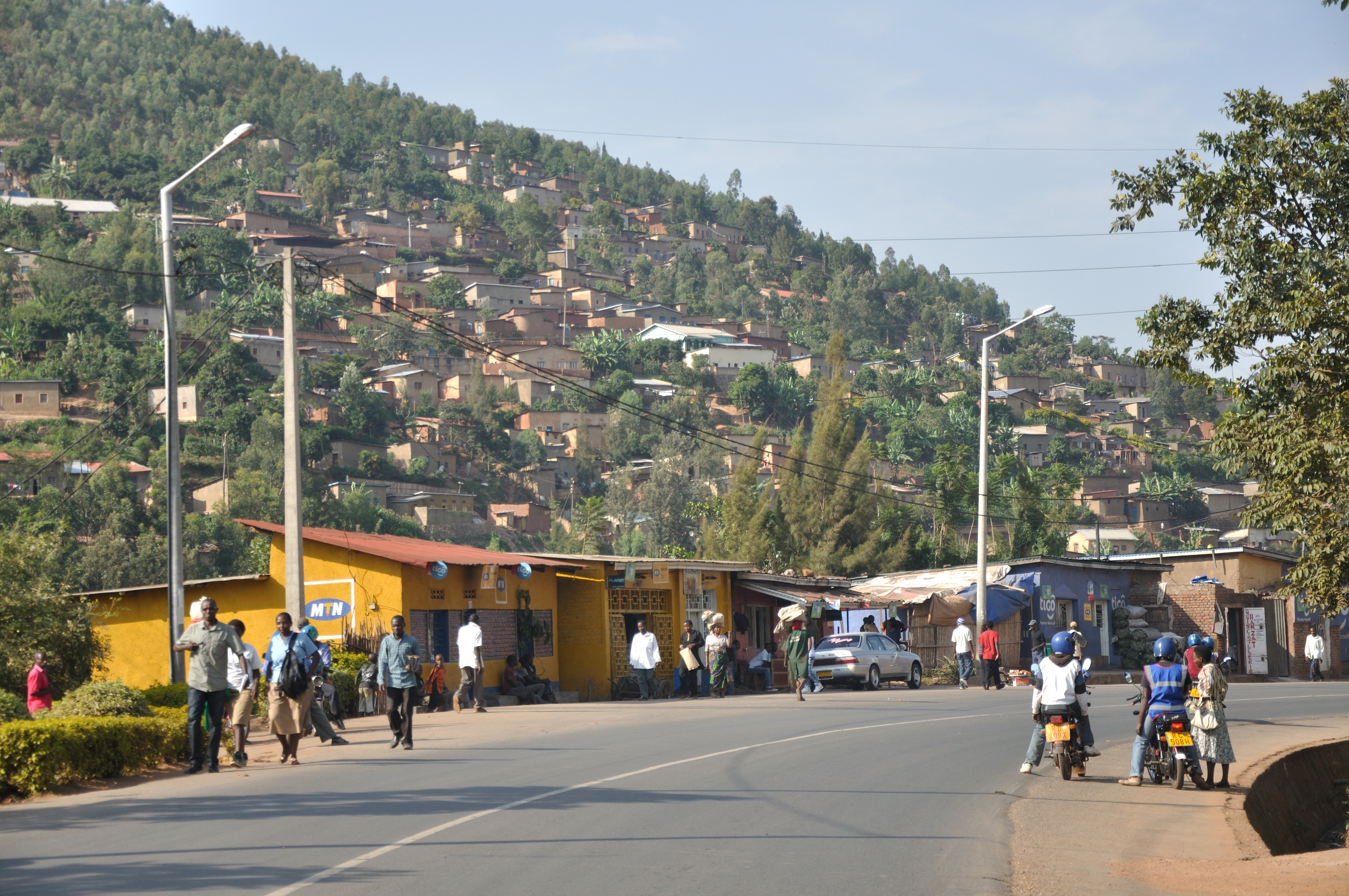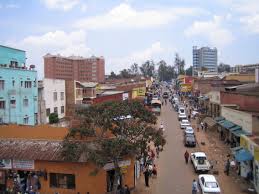Return to the search form Return to your search results
SIT Kenya Internship Public Health in the Tropics
Fast Facts
Sessions Offered:
Summer
Location:
Kisumu, Kenya
Credit:
Transfer
Program Features
Affiliated Program
Research
Internship
Eligibility:
- 2.5 GPA
- Good academic and disciplinary standing
- Emotional maturity
Application Due:
Summer 3/4

The SIT Experience
- Rigorous academic programs through a field-based, experiential approach
- Undergraduate research through an Independent Study Project
- Cultural immersion through fieldwork, language classes, and urban and rural homestays with local families
- A small group of students in each program, supported by SIT faculty and staff, homestay families, in-country experts, and community members
- Access to SIT's extensive local resources and networks
- A commitment to reciprocity as the foundation of our educational philosophy
Academic Program
The School for International Training (SIT) offers opportunities to gain language proficiency and learn how to conduct undergraduate field research abroad; concentration on exploration of a specific critical global issue. Cutting-edge public health initiatives are being implemented in Kisumu, a Kenyan port city on Lake Victoria and home to the largest U.S. Centers for Disease Control and Prevention facility outside North America. Students will learn research protocol and how to gather and analyze data from experts developing improved delivery of treatments and vaccines for infectious diseases and translating findings into policy recommendations. They’ll also study Kiswahili, the lingua franca of East Africa, and gain a range of perspectives from two homestay families, one in urban Kisumu and one in the rural hills and lakes region of Siaya County.
Major topics of study include:
- Health and Human Rights in Kenya
- Urbanization and Public Health
- Kiswahili language study
- Research Methods and Ethics
- Independent Study Project or internship
For more information, see SIT's webpage.
Program Structure

Interdisciplinary Seminars
Thematic seminars merge student experience with academic theory to examine critical issues from multiple perspectives. Students learn from SIT faculty as well as guest lecturers from local universities, research institutes, non governmental organizations (NGOs), and community and professional associations. Field-based activities and assignments complement readings, discussions, and research papers, allowing students to engage in a variety of study methods.
Intensive Language Study
Programs typically offer language study at the intermediate and advanced levels and/or beginning instruction in a less commonly taught language spoken by the local community. Language courses incorporate formal classroom instruction, discussion, and field exercises designed to enhance student engagement while improving oral and written competence. Select programs are taught entirely or partly in the target language.
Research Methods and Ethics
Students learn appropriate methodologies that prepare them to undertake fieldwork on topics connected to the program’s theme and specific cultural context. Students develop research skills and approaches including cross-cultural adaptation and skill building; project selection and refinement; contact and resource cultivation; observation and interviewing skills; gathering, organizing, and presenting findings; and maintaining a field journal. Students also examine the ethics and impact of their research on local communities and are required to follow the World Learning/SIT Human Subjects Review Policy, which serves as an approval process and guide for ethical field study practices.
Independent Study Project (ISP)
Typically conducted during the last month of the semester, the ISP allows students to pursue original field-based research on a topic of their choice within the program’s thematic parameters. The academic director advises each student on developing a project plan. Students also identify an ISP advisor who works with the student on the design, implementation, and evaluation of the student’s research project. Final projects generally include a 20- to 40-page paper and presentation to peers, academic staff, and interested members of the host community.
Cultural Activities
UGANDA AND RWANDA:
Travel by road to Uganda and Rwanda for an opportunity to compare and contrast Kenya’s health systems to Ugandan and Rwandan systems in the context of health and human rights and epidemiology. Study Uganda’s health system starting in the border town of Busia, then moving on to Jinja and the capital city, Kampala. In Kigali, Rwanda, appraise the post-genocide era and exceptional achievements in health care including universal health care, malaria, and HIV/AIDS. We also visit rural areas outside of Kigali.
NAIROBI:
You will spend a few days in Nairobi. Here, you will visit various United Nations bodies and other international organizations where you will explore global health issues and develop your Independent Study Project or internship proposal.
Program Dates
Spring Semester: Late January- Mid-May
Fall Semester: Early September - Mid-December
People and Culture
Danielle Marvin (Spring 2017)
Pre-DeparturePerson to person
A little discomfort may just do you some good
Videos
Video "5 Reasons You Should Study Abroad in Kenya"
Video "Students Views of Studying Public Health in Kenya"
Video "Student Videos SIT Kenya"
For more information
Steps to Studying Abroad
- Before initiating an application with SIT, students must complete a Discover Study Abroad session at the University of Iowa.
- After completing the Discover Abroad session, students will receive an email with their study abroad advisor assignment.
- Once assigned, students must meet with their study abroad advisor to receive program application instructions.
Study Abroad
1111 University Capitol Centre
Iowa City, IA 52242
Phone: 319-335-0353
Email: study-abroad@uiowa.edu
Kisumu

The program is based in Kisumu, Kenya.
Kisumu is the third-largest city in Kenya after the capital, Nairobi, and the coastal city of Mombasa. It is the third-largest city (after Kampala, Uganda and Mwanza, Tanzania) in the Lake Victoria Basin. Kisumu is not far from Kogelo, a village known for being the hometown of Barack Obama Sr., the father to the 44th president of the United States. Culturally, Kisumu serves as the headquarters of the Luo speaking people of East Africa. It was the most prominent urban centre in the pre-colonial, post-colonial, and modern era for natives of Kavirondo region. Some of the most significant political events that have shaped the trajectory Kenya have happened in Kisumu. Kisumu is about 320 km (200 mi) northwest of Nairobi and its located at the shores of Lake Victoria.Kenya
Kenya, officially the Republic of Kenya (Swahili: Jamhuri ya Kenya), is a country in Eastern Africa. At 224,081 sq mi, Kenya is the world's 48th largest country by total area. With a population of more than 47.6 million people in the 2019 census, Kenya is the 29th most populous country. Kenya's capital and largest city is Nairobi, while its oldest city and first capital is the coastal city of Mombasa. Kisumu City is the third-largest city and also an inland port on Lake Victoria. As of 2020, Kenya is the third-largest economy in sub-Saharan Africa after Nigeria and South Africa.
Kenya is a presidential representative democratic republic, in which elected officials represent the people and the president is the head of state and government. Kenya is a member of the United Nations, Commonwealth of Nations, World Bank, International Monetary Fund, COMESA, International Criminal Court, and other international organizations. With a GNI of 1,460, Kenya is a lower-middle-income economy. Kenya's economy is the largest in eastern and central Africa, with Nairobi serving as a major regional commercial hub. Agriculture is the largest sector: tea and coffee are traditional cash crops, while fresh flowers are a fast-growing export. The service industry is also a major economic driver, particularly tourism. Kenya is a member of the East African Community trade bloc, though some international trade organizations categorize it as part of the Greater Horn of Africa. Africa is Kenya's largest export market, followed by the European Union.*
R
US Department of State Country Information
The US Department of State provides safety and security information for every country of the world to help you assess for yourself the risks of travel. Each country information page contains a Travel Advisory, Alerts, and other important details specific to that country that could affect you.
Pay close attention to the entry and exit requirements, local laws and customs, health conditions, and other details to help decide whether traveling to any given country is right for you. Non-US citizen travelers may also wish to seek guidance from the embassy of their country of citizenship. The UI International Travel Policy for Students addresses restrictions on student travel to high-risk locations and engagement in high-risk activities abroad.
*https://en.wikipedia.org/wiki/KenyaLiving Arrangements

Kisumu In Kisumu, Kenya’s third largest city located on the shores of Lake Victoria, you’ll live in an apartment building near the SIT program base. Each apartment has three en-suite bedrooms with a shared kitchen and living room.
Kisumu is a relaxed city and one of the safest in Kenya. Essential services like supermarkets, restaurants, and ATMs are all within walking distance to SIT’s program office and your apartment. Kisumu is a major port and trading hub and the center of the Luo community. Kisumu’s fisheries and agriculture are important contributors to the local, regional, and national economy.
Passport
US Citizens
If you do not have a passport, it is important that you apply for one as soon as possible to ensure you receive it before the program begins. US citizens can find more information about how to apply for a passport on the US Department of State’s website.
Important notice for students without a valid passport or whose passport will expire within the next 12 months:US citizens can find more information about how to renew a passport on the US Department of State’s website.
Students without a valid passport should apply for a new passport or a passport renewal as early as possible.
Students with a valid passport should check the expiration date. Passports must be valid for at least 6 months AFTER the anticipated return to the US from studying abroad. If your passport is not valid for at least 6 months after your anticipated date of return to the US, you must renew your passport before applying for the visa you will need to enter your host country.
Expedited processing service is available for US passports (although this still takes several weeks and is at an additional cost). UI Study Abroad encourages students to ask the passport agency at the time of application whether expedited service is recommended.
Non-US Citizens
Students who are not US citizens should contact Monica Ernbergermonica-ernberger@uiowa.edu) for information on how to ensure that their passport is valid for the duration of their time abroad.
Travel Arrangements
Students will work with their program provider to make travel arrangements to their program site. The cost of travel is not included in the course fee. UI Study Abroad will not arrange a group flight to your study abroad destination.
Do not purchase plane tickets until you have received instructions on how to do so from your program provider.
Local Transportation
Within your host city and around the country, students will utilize public transportation such as buses and trains. Excursions and general travel require a lot of walking, so bring some comfortable shoes!
Eligibility
This program is open to UI students who fulfill the following requirements:
- Minimum 2.5 cumulative GPA: Students must have at minimum a 2.5 cumulative GPA to participate in this program.
- Good academic and disciplinary standing: Students must be in good academic and disciplinary standing at the University of Iowa. Academic and disciplinary history will also be considered when determining whether a student is prepared to represent the University of Iowa as part of this program. Students who, even after being accepted into a program, are put on either academic and/or disciplinary probation for any period of time overlapping with the study abroad program dates are ineligible to study abroad. In these cases, students must forfeit their acceptance, will not be allowed to study abroad, and are wholly responsible for any and all financial expenses incurred.
Costs
The cost sheet outlines the total estimated costs associated with participating in this program and can be used for financial aid purposes. It includes fees charged on students’ U-Bill, as well as out-of-pocket expenses. Actual out-of-pocket expenses will vary from individual to individual. Quoted estimates are conservatively high, yet realistic.
The cost sheet includes the Study Abroad Administrative Fee and Mandatory Iowa Regents CISI Travel Insurance. Please see the respective websites for further details. If the fee is inclusive of UI tuition, it is calculated by Current Tuition. There is a $50 application fee charged to a student's U-Bill at the time of application.
Estimated Cost Sheet
 Summer 2025 Cost Sheet
Summer 2025 Cost Sheet
Financial Aid & Scholarships
Most financial aid (scholarships, grants, and loans) is applicable to study abroad programs. Please check the Study Abroad website for information on financial aid and how it may be applied to studying abroad. You are also encouraged to speak with someone at the Office of Student Financial Aid to explore financial aid options. Scholarship opportunities exist for study abroad participants. Please explore Study Abroad’s websites for UI Study Abroad Scholarship Opportunities.
SIT offers scholarships and grants that can be found on SIT's Scholarships & Grants web page.
SIT has a matching scholarship for Pell Grant Recipients. More information can be found on SIT Pell Grant Match Award web page.
How to Apply
Interested students should make an appointment with the designated UI Study Abroad advisor to discuss the program and the application process. Appointments can be scheduled by calling 319-335-0353. During the appointment, the advisor will provide full application instructions. Note: Application materials will not be reviewed unless a student has already met with the advisor to discuss the program.
The application process consists of the following steps:
• Complete the UI Online Application for Study Abroad. Please note that the non-refundable $50 application fee will be charged to your U-Bill as part of this online application.
• Complete the SIT Application. Final admissions decisions to the program are made by SIT.
Application Deadline
Deadlines are relative. This program often fills early. Spots are first come, first served.Applications are due on March 4 for Summer.
Health & Safety Planning
In addition to submitting their Confirmation of Participation form, students should review the following:
Study Abroad ResourcesIowa Regents CISI Health Insurance Information
Students are also encouraged to complete the Health Preparation Guide for International Travel form with their medical practitioner. This document is intended to help you plan for your medical needs abroad. Please DO NOT turn this form in to UI Study Abroad.
Health Preparation Guide for International Travel form with their medical practitioner. This document is intended to help you plan for your medical needs abroad. Please DO NOT turn this form in to UI Study Abroad.
Scholarships & Financial Aid
Scholarships & Financial Aid
For more information about receiving financial aid while studying abroad, please review the following:UI Financial Aid Information
You can find more information about options for funding your study abroad experience including scholarships on Undergraduate Scholarships for Study Abroad.
SIT automatically gives students from Big Ten institutions a $1,500 scholarship. There is no application necessary, the credit is automatically credited to your account. SIT offers additional awards that can be found on SIT's webpage.
Pell Grant Recipients will have their application fee waived by SIT, are eligible for additional SIT scholarships, and are competitive candidates for the Department of State's Gilman Scholarship. Please talk to your Study Abroad Advisor for more details!
Visa
U.S. passport holders should follow the Visa batch process instructions provided by SIT. Make sure to submit all required documents by the submission deadline. Otherwise you will have to apply for your student visa independently.
U.S. Citizens will need a student visa if they are going abroad for a semester, or academic year. Typically, they will not need a visa for the summer sessions.
UI Study Abroad will hold advising appointments and/or information sessions to provide details on the visa application process. UI Study Abroad staff can provide some assistance on the Italian visa application process, but ultimately the individual traveler (the student) is the person who is responsible for providing correct information on the visa application and securing the visa and all other required documentation prior to travel.
Prior to starting the visa application process check in with SIT for more information; they have a preferred timeline that students need to follow.
Orientation
In order to prepare for your time abroad, you are required by the University of Iowa to complete two orientations. These may be in addition to orientations provided by your on-site provider. See below for more information.
Online Education Abroad Pre-Departure Orientation
You are required to complete the International Programs ICON course "Education Abroad Pre-Departure Orientation" prior to departure. This orientation is mandatory for all students going abroad under the auspices of the University of Iowa. It covers many practical matters about living overseas, such as health and safety, communication, money, goals, and much more. You will be enrolled in this course by International Programs and an email will be sent to you once enrolled. If you have any questions, you can email safety-abroad@uiowa.edu
Program-Specific Orientation
This orientation will be facilitated by your study abroad advisor and will cover content specific to your program and host country. It could be conducted in a group setting or one-on-one depending on your type of planned activity abroad. Your study abroad advisor will send you more information about this mandatory in-person session.
Pre departure Resources
SIT will provide you with a variety of pre-departure resources to prepare you for your study abroad experience. These will include a packing list, cultural information, housing instructions, etc. Ensure that you thoroughly review any information provided to you by SIT and refer back to it if you have any questions.
These materials may be periodically updated to reflect new program information prior to departure. Be sure to check your SIT Account often.
